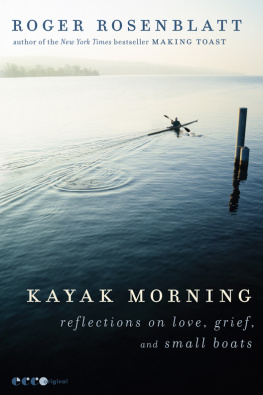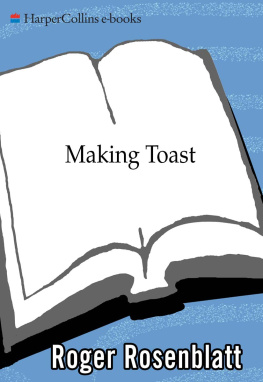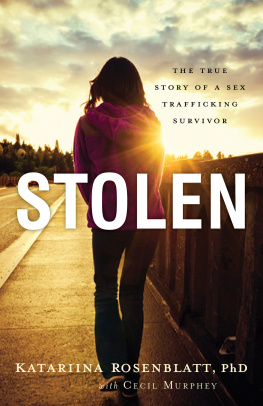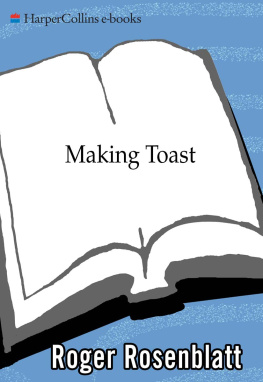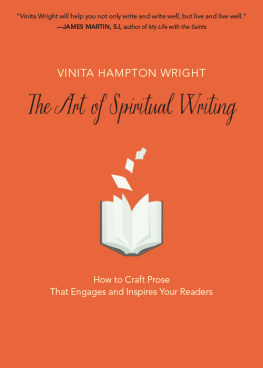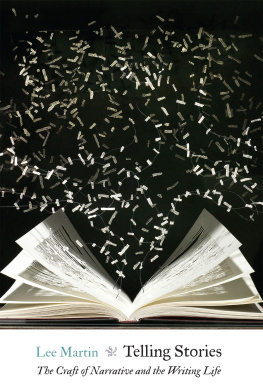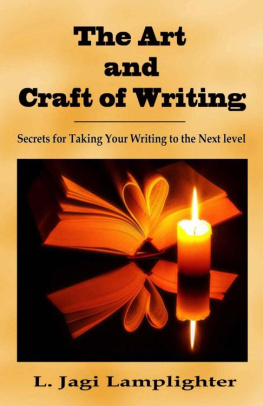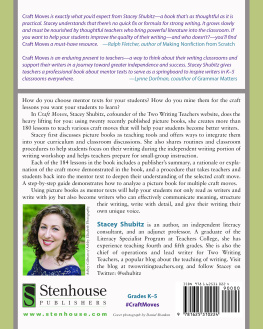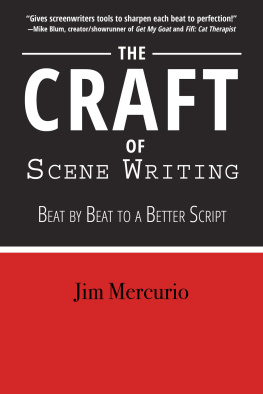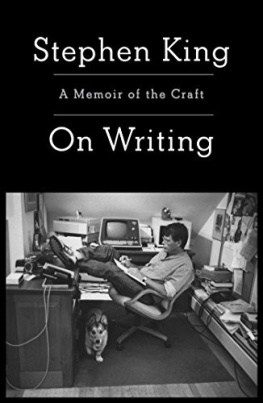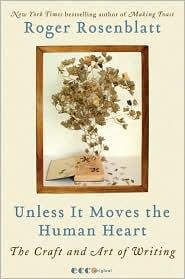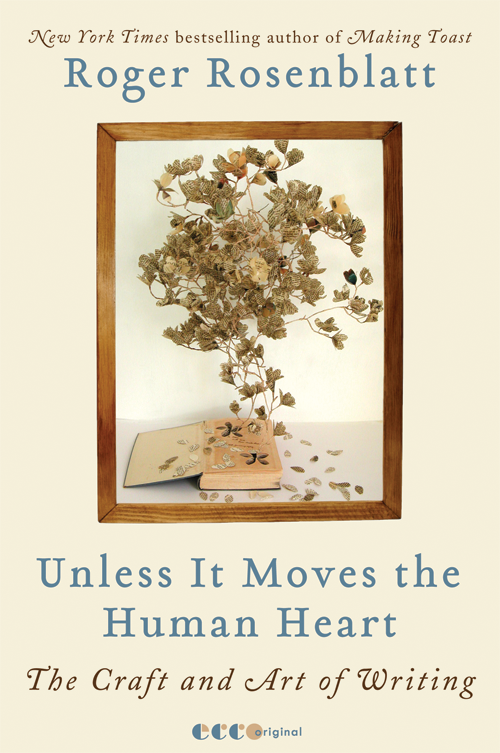The difference between the almost right word & the right word is really a large matterits the difference between the lightning bug and the lightning.
B efore you read this book, I must confess a fraud. What I present as a word-for-word account of the conversations that went on in my writing classes at Stony Brook University in the winter/spring of 2008 is fiction, top to bottom. I would like to have recalled verbatim all the marvelous things that I and my dozen students said over the course of the semester, but my mind, hardly a steel trap, recalls only the problems and subjects we discussed. To be clear: nobody really said what I say he said in class. But the ideas expressed here were expressed there. The samples of student writings are genuine. And the students themselves were just as gifted, lovable, and annoying as I have drawn them.
Chapter 1
Us
J asmine, Inur, and Kristie took my Modern Poetry class last semester. Nina took that class with me last spring. George, Suzanne, Diana, and Veronique took my workshop in novel-writing, also last spring. Of the others in the room, I recognize only Robert, who is a graduate student in our MFA writing program. He also owns two of the better restaurants in the areaRoberts in Water Mill and the Paradise in Sag Harbor. As soon as I spot him, it occurs that I might inveigle him into holding the class party at Roberts, for free. I mention this brainstorm as I call the roll. He maintains an amused but noncommittal expression. Ana, Donna, and Sven, like Robert, have not taken classes with me before and appear both more polite and more apprehensive than the others. I try to make everyone feel as uncomfortable as possible.
Why do you want to take this class, Jasmine? I ask the twenty-two-year-old. To learn to write like John Donne? She smiles demurely. Last semester, in Modern Poetry, she piped up out of the blue: I dont like John Donne. In forty years of teaching literature and writing courses, I had never heard anyone say such a thing. This slight, composed, reserved graduate student, with the high voice of a little girl, had assaulted the sacred. He has nothing original to say, she said. I told her, Even if that were so, dont you think he gets credit for the way he said it? She looked away, faintly bored. I hated to admit that she may have had a point, which still will not prevent me from needling her from now on.
This course I call Writing Everything. My students spend the term writing a short story, an essay, and some poems. We meet once a week for two hours. The original idea of the course was to determine the principal strengths of each of the forms, then see how each might be of use in writing any of the others. Most MFA students plan to write fiction, so I thought that, in addition to short stories, they would profit from trying poems, to concentrate on original language, and essays, to develop ideas. It turned out that those expectations were too rigid, and I learned it was better to say less about the individual properties of the forms, and simply allow the students to enjoy writing something different.
They sit at the seminar table in a classroom at the Stony Brook Southampton campus, on eastern Long Island, writing pads before them and pens poised, on the chance that I might say something interesting. It is the last week of January 2008, the beginning of spring term. The room, a cubed trapezium made up of sharp corners and angles, is a little too bright, with floor-to-ceiling windows that admit the fierce winter sunlight. Even on cloudy days the white walls and the white tiled ceiling reflect light. The floor is gray, with a design of little sand-yellow squares. Two long egg-box cases of fluorescent bulbs hang from wires ten feet above the seminar table, also white. The table is composed of four smaller tables pressed together in a rectangle, about six by twelve feet. I sit at one end with Kristie beside me. I think she has claimed the position for purposes of hectoring. George and Suzanne, husband and wife, sit at the opposite end, with the others arranged four on each side of the table. Twelve is a very good number for a writing class, as it is for juries and apostles. The chairs, some type of plastic, are construction-paper blue. There is one blackboardgreen in this casebehind me, and another on the wall to my left. Occasionally faint hammering and the whine of an electric saw can be heard from outside, as this, the newest of the Stony Brook University campuses, is still being worked on. But the room has a quiet feel, and something about its aggressive sterility works in favor of creative minds.
Isnt this class supposed to meet for three hours? asks Ana. Thats what it says in the course catalog.
It does say that. But I cant take the sight of students for that long. Even two hours is stretching it.
Well report you to the dean, says Sven.
Please do. But if you would like to stay here for three hours every week, be my guest. I leave after two.
I have a good feeling about this class. Im going to like them. Liking a class is more practically useful than it sounds. In a likable class, discussions are freer, more open. When the students like one another, they take everyones work more seriously. In another class I taught, after a woman read a section of her novel aloud, another woman asked, May I be your friend? The first woman answered, You already are. The students will also feel safe with one another, and will trust the group with personal information they use in their writing. In my novel-writing workshop, a student wrote about a woman who was taking care of her husband, whose mind was deteriorating. She too was deteriorating from the effort. She told her story as a novel, but the students understood it was her own. They respect such disclosures. They unite with one another like a noisy brood of brothers and sisters. And they can always unite against me.
What if we stay for the third hour and discover we dont need you? asks Robert.
Win-win.
Sometimes they protect one another. One of the first things teachers learn to look for in students writing is the subject of suicide. A student in that same novel-writing workshop ended his book with the hero walking into the ocean after having slit his wrists with seashells. A woman in the class came to my office hours to say she was concerned about the suicide ending. Did I think something was troubling the student? I talked to him after class, and he seemed fine. But the impressive thing was his fellow students alertness, which stemmed from affection. Writing programs do not actively promote such careful attentiveness, but the fact that every life counts is built into the work we do. I think the students pick up on this.
This years group come from very different backgrounds, and are widely diverse in experiences and in ages. All this should make them more interesting to one another. I remind them that they comprise the only audience of readers they need worry about for the present. They will read one anothers work, and comment on it. I want them to know, Youll never have a situation like this again. Writing is a lonely enterprise. Here, in these classes, you have colleagues, people who share everything with you and wish you well. I urge them to be severe and exacting in their comments. Ill never let you be harsh, though I doubt you ever would be. And I promise: in all my years of teaching, Ive never had to referee a fistfight. This is a half-lie. Some years ago I had a really good student writer, a kid from the streets, who was built like a frozen roast and rode to class on a Harley. He could not take criticism, and fought with me over every correction I made on his work, beyond the point of reason. Years later he sent me a letter allowing that I may have been right about a thing or two. But there was one class meeting where things got so hot between us, we nearly came to blows, which would have been bad news for me.


